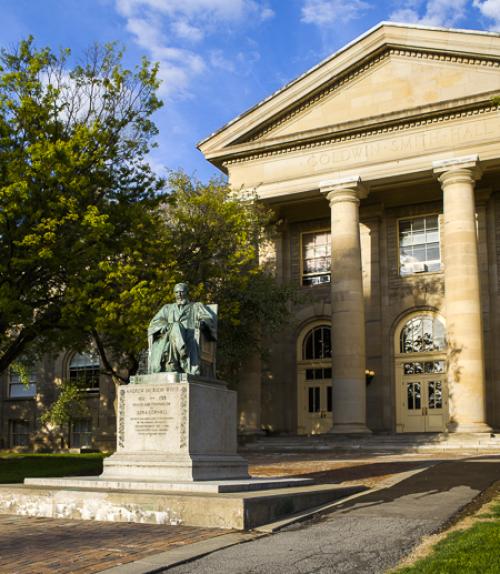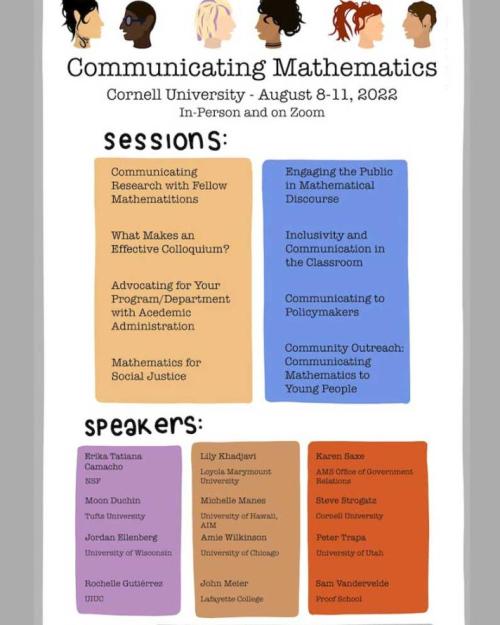Mathematician Kathryn Mann remembers attending one academic conference where ideas were simply not getting through.
“It seemed like 90% of the audience was totally lost during 90% of the talks,” said Mann, associate professor of mathematics in the College of Arts and Sciences. “I thought to myself: we need to do better at talking to each other.”
That experience inspired Mann to organize “Communicating Mathematics,” a four-day workshop held Aug. 8-11, supported by the National Science Foundation and the Cornell Department of Mathematics (A&S).
During sessions offered in person and online, faculty from several universities led discussions on what it takes to communicate effectively among mathematicians, to students, and to the public.
Among other speakers, Steven Stogatz, the Jacob Gould Schurman Professor of Applied Mathematics (A&S) shared insight on speaking with the public about math – which he’s had a lot of practice doing. The author of several popular books about math, Strogatz is host of The Joy of X podcast and this year is Distinguished Visiting Professor for the Public Dissemination of Mathematics at the National Museum of Mathematics in New York.
Other topics included: communicating broader impacts of research, communicating change, advocating for your department, outreach with future mathematicians, and many more.
Communication is arguably important in every discipline, but math presents unique challenges, Mann said, leaving mathematicians feeling alienated.
“Research-level mathematics has a very specialized vocabulary,” she said. “We use words to mean extremely specific things – sometimes unusual words like ‘orbifold;’ sometimes ones borrowed from normal English but assigned new meanings, like ‘factor’ or ‘conjugate.’”
This allows mathematicians to communicate complicated ideas to each other with amazing precision, Mann said, “but to the uninitiated, it can be impossible to parse.”
Good communication is important in many areas of mathematics, Mann said. The discipline is highly collaborative, so communication is essential to foster new research across and within fields. Effective communication in the classroom enables students to participate fully and challenge themselves. And there’s the question of communicating math principles and findings to the broader public.
“Research mathematicians are also increasingly engaged in aspects of social and civil justice work (and we should be!), which presents its own communication challenges,” Mann said.
During the workshop, a panel on math and civil rights was led by Moon Duchin, professor of mathematics at Tufts University, who applies research in geometric group theory and geometric topology to study the mathematics of redistricting and gerrymandering. She leads an applied research program in data science for civil rights.
Lily Khadjavi, professor and chair of mathematics at Loyola Marymount University, led a session on mathematics for social justice. And Karen Saxe, from the American Mathematical Society’s office of government relations, offered insight on communicating with policymakers.
Although Mann hopes to reach broader audiences with future math communication conferences and even a symposium across academic fields, the August workshop was aimed at college-level researchers and teachers in mathematics, from senior faculty to recent and current Ph.D. students.
“What I think is most exciting about this workshop is that almost all our speakers are mathematicians, who can speak about the challenges of math communication from the inside,” Mann said.





